A cubical block of side cm is connected to a smooth and uniform disc of mass through an ideal string as shown. The block is placed on a thin liquid layer of thickness mm. if center of the disc move downward with constant speed of after the system is released. If coefficient of viscosity of liquid is Pa-sec. then find (Take ) 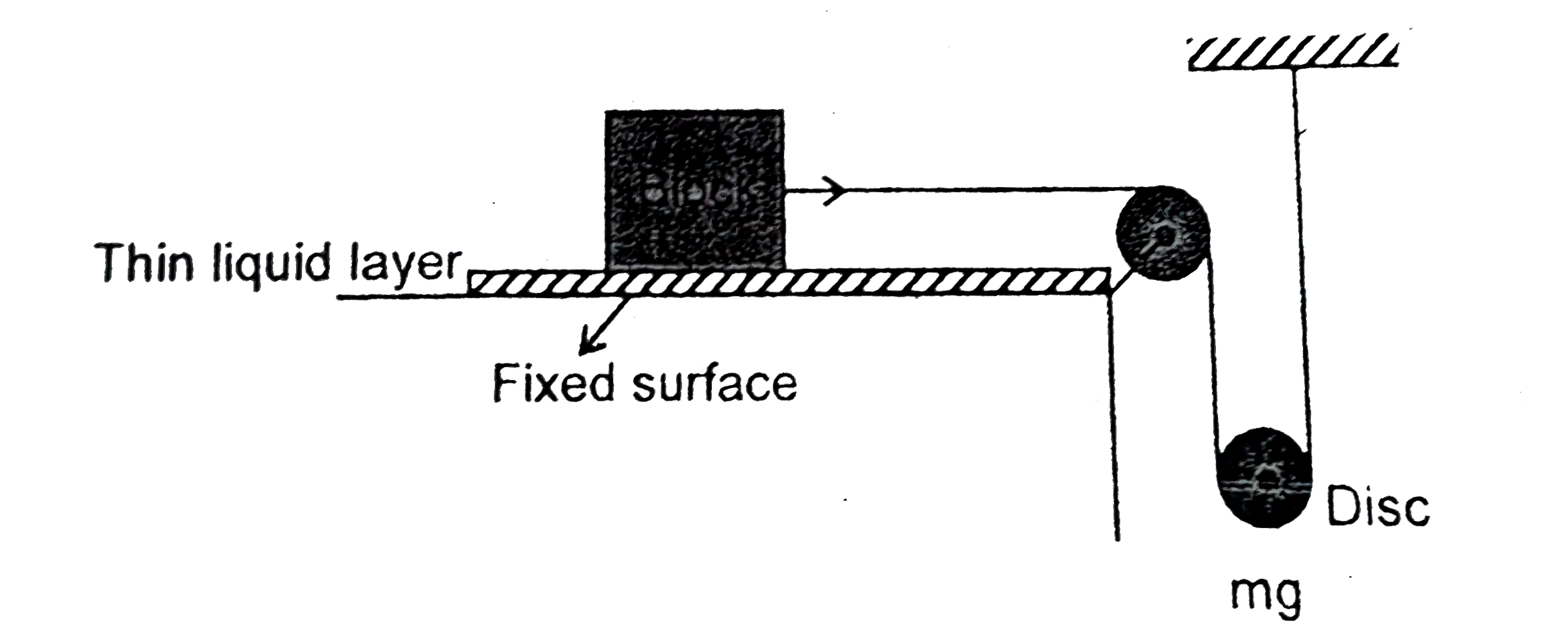
NA
Topper's Solved these Questions
Similar Questions
An external force 6N is applied on a sphere of radius R = 10 cm of mass 1 kg and the sphere moves in a liquid with a constant velocity 5 m/s making 530 with the horizontal.The coefficient of viscosity of the liquid is 20/(6π), in S.I units. (Take g=10m/s2)
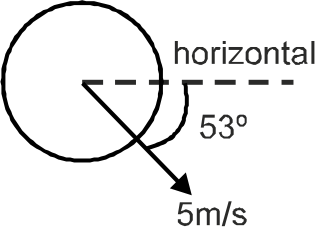
View SolutionAflat plate of area 0.05m2 is separated from another large plate at rost by a liquid layer of uniform thickness 1μm. The tangential force needed to move the smaller plate with a constant velocity of 10cms−1 i s 20 N. Calculate the coefficent of viscosity of the liquid.
View Solution
Knowledge Check
A metal block of area 0.10m2 is connected to a 0.01 kg mass via a string that passes over a massless and frictionless pulley as shoen in figure.A liquid with a film thickness of 0.3 mm is placed between the block and the table. When released the block moves to the right with a constant of 0.085ms−1. The cofficient of viscosity of the liquid is
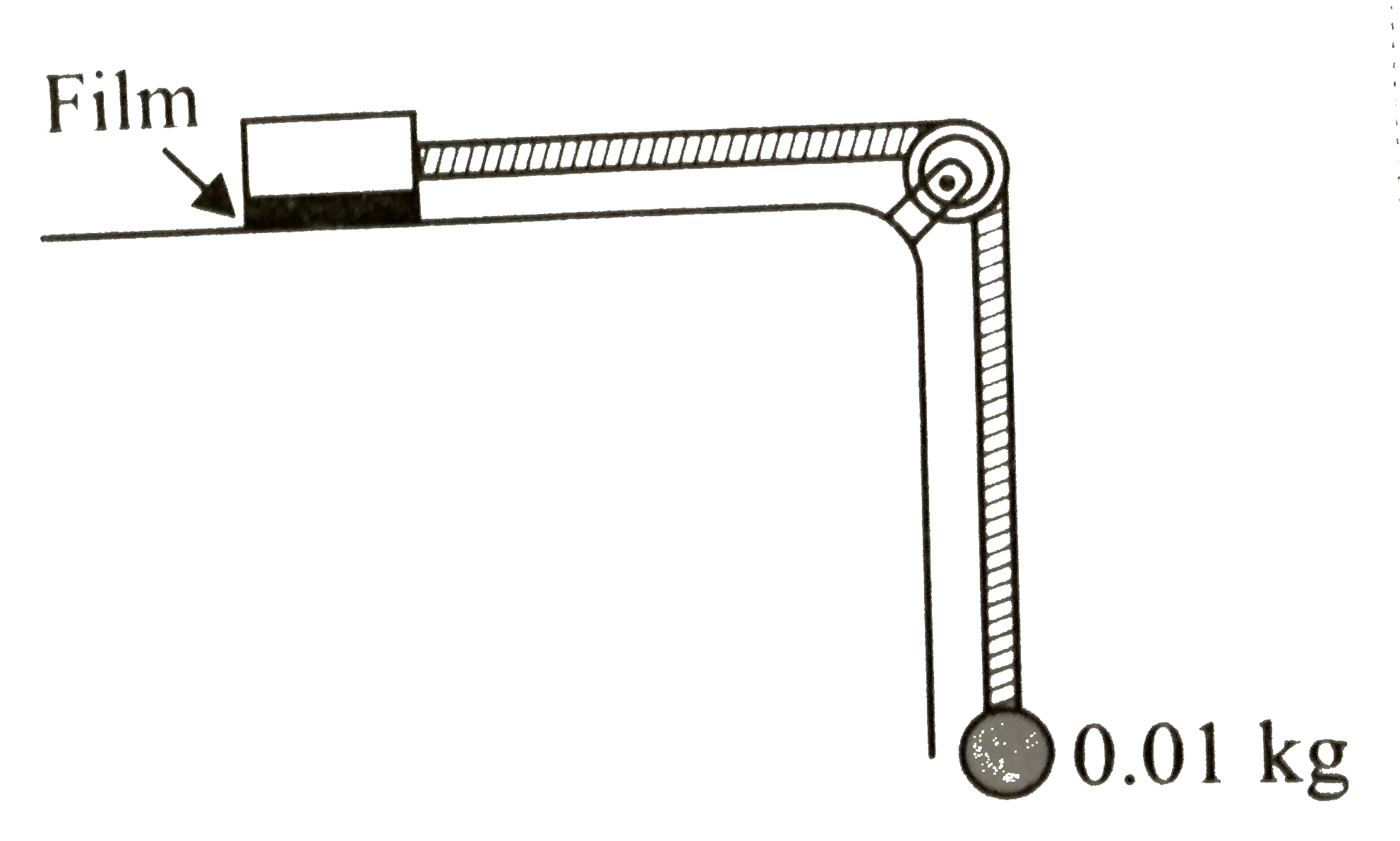 A2.5×10−3Pa sB3.5×10−3 Pa sC4.5×10−3 Pa sD6.5×10−3 Pa s
A2.5×10−3Pa sB3.5×10−3 Pa sC4.5×10−3 Pa sD6.5×10−3 Pa s
A metal plate of area 0.10m2 is connected to a 0.04kg mass via a string that passes over an ideal pulley (considered massless and frictionless) A liquid with a film of thickness of 0.3mm is placed between the plate and the table. When system is released, the plate moves up with constant speed of 0.085m/s. Find the approximate value of coefficient of viscosity of the liquid. (mass of metal plate is 0.02kg, g=9.8m/s2)
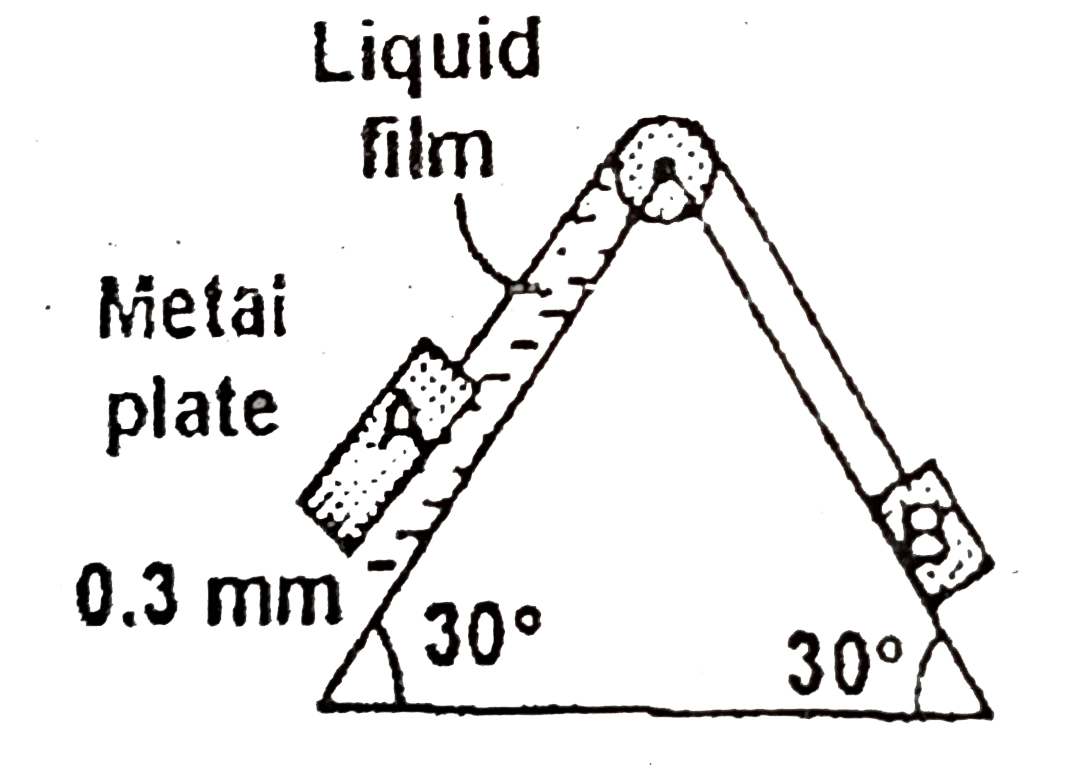
View SolutionA metal plate of area 103 cm2 rests on a layer o oil 6 mm thick. A tangential force of 10−2 N is appled on it to move it with a constant velocity of 6 cm s−1 . The coefficient of viscosity of the liquid is :-
View SolutionA metal block of area 0.10 m2 is connected to a 0.02 kg mass via a string. The string passes over an ideal pulley (considered massless and frictionless) as shown in figure. A liquid with a flim of thickness 0.15 mm is placed between the plate and the table. When released the plate movees to the right with a constant speed of 0.075 m s−1. What is the coefficient of viscosity of the liquid?
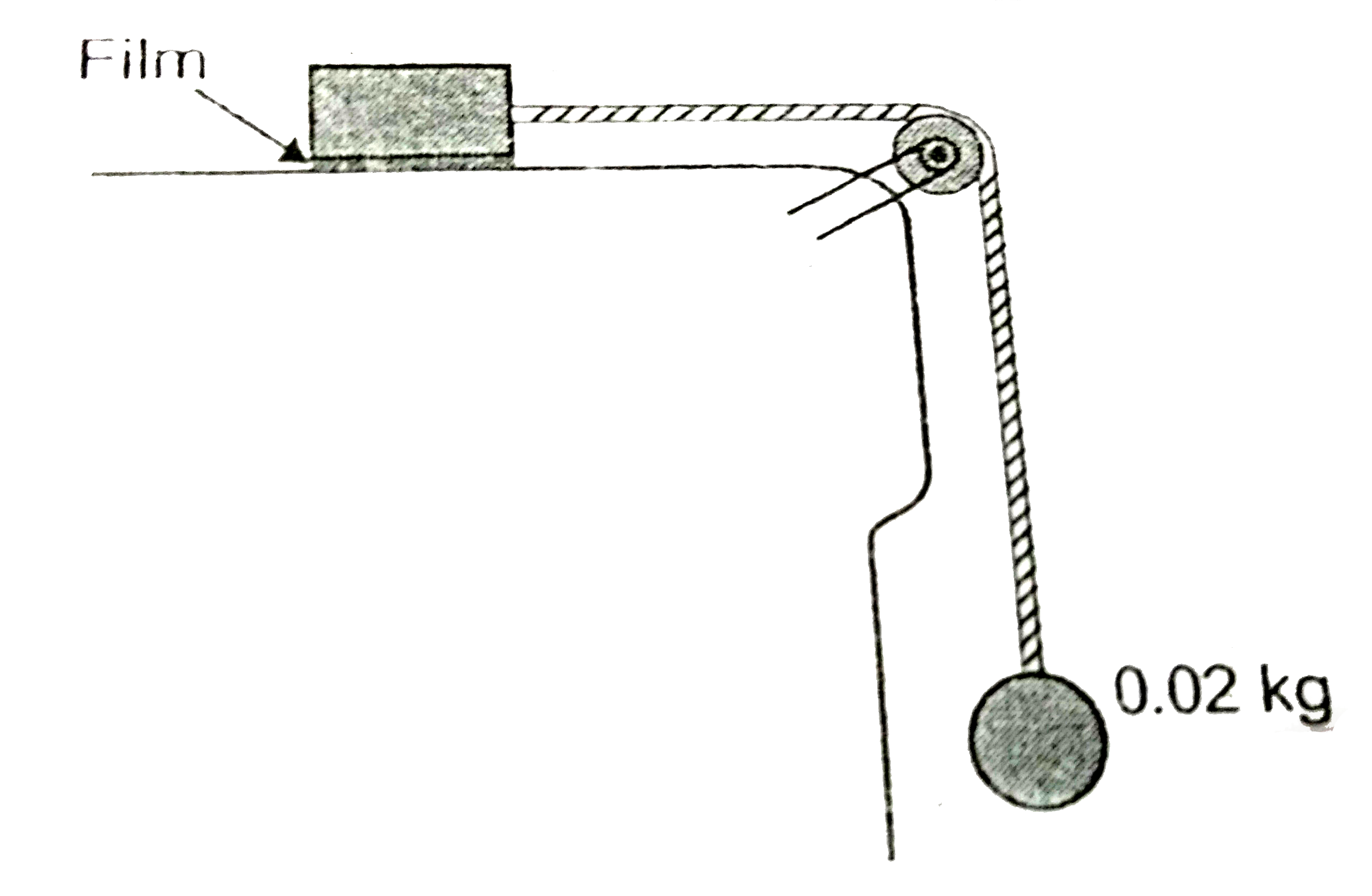
View SolutionAn air bubble of 1cm radius is rising at a steady rate of 0.5cms−1 through a liquid of density 0.81gcm−3. Calculate the coefficient of viscosity of the liquid. Neglect the density of air. ( Take g=10m/s2)
View SolutionA metal block of area 0.10 m2 placed at a table, is connected to a 0.010 kg mass via a string that passes over an ideal pulley. Th pulley is fixed at the edge of the table. A liquid with a film of thickness 0.30 mm is placed between the block and the table. If the coefficient of viscosity of the liquid is 3.45×10−3 Pa s, with what constant velocity does the block move when released?
View SolutionA metal plate of area 0.10m2 is connected to a 0.01kg mass via a string that passes over an ideal pulley (considered to be friction-less), as shown in the figure. A liquid with a film thickness of 3.0mm is placed between the plate and the table. When released the plate moves to the right with a constant speed of 0.085ms−1. Find the coefficient of viscosity of the liquid.

View SolutionTwo blocks each of mass 4 kg connected by a light string which is passing over an ideal pulley is as shown in figure. If the system is released from rest then the acceleration (in m/s2) of centre of mass is (g = 10 m/s2)
View Solution
